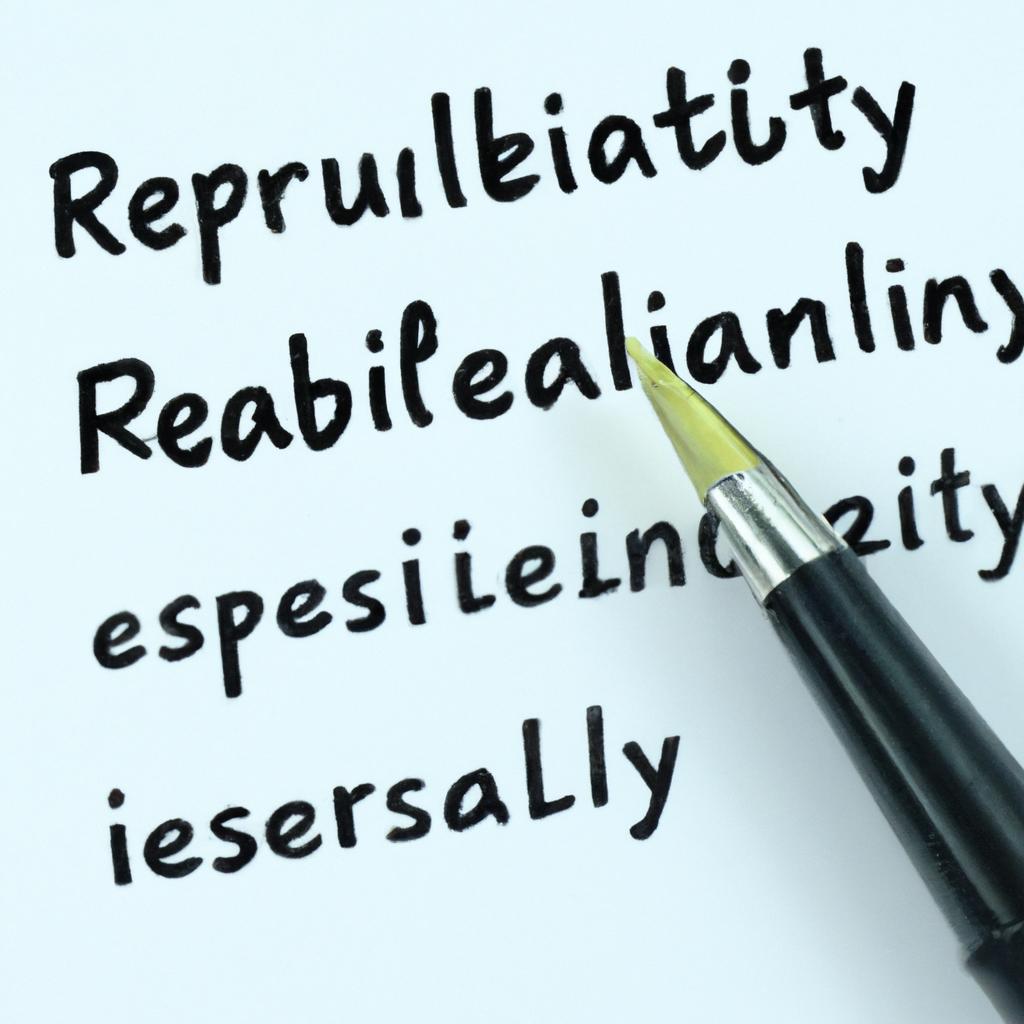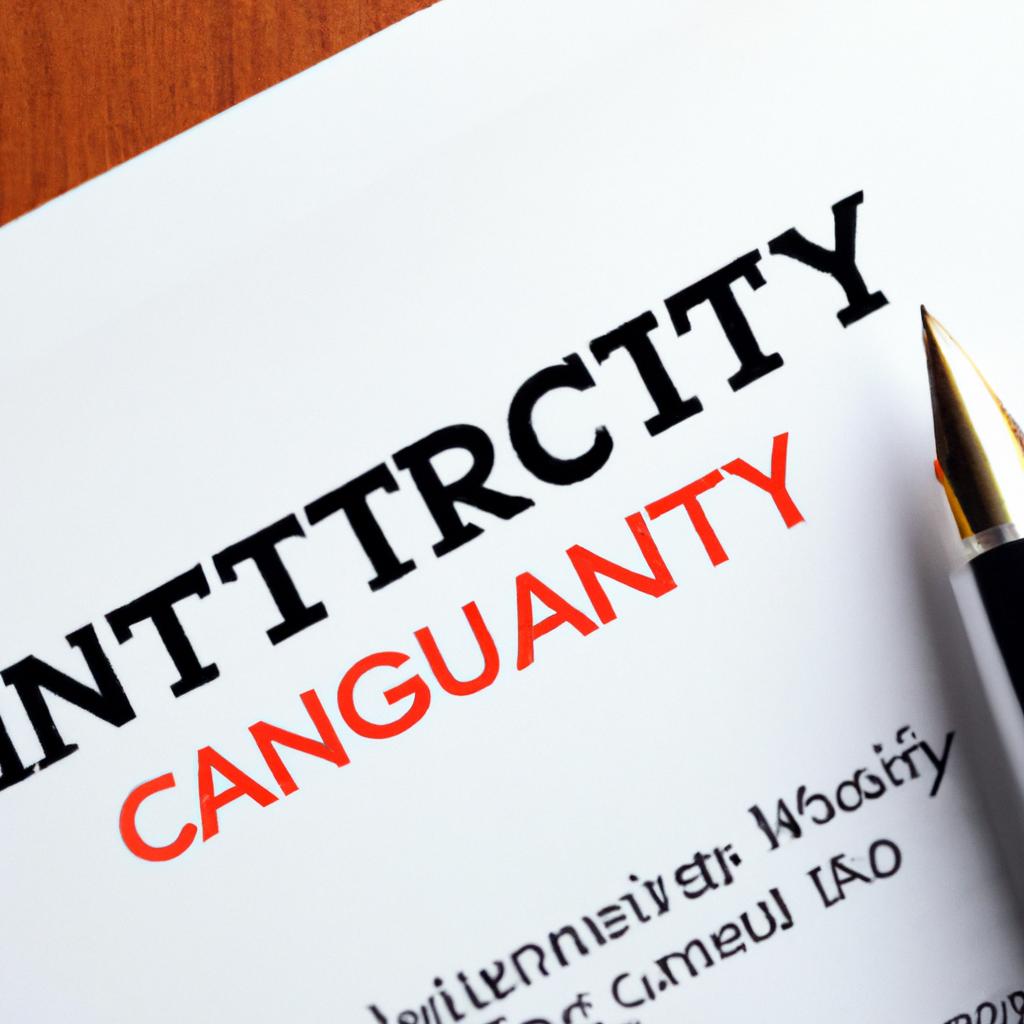Trust is the cornerstone upon which relationships, businesses, and society as a whole are built. As experienced lawyers at Morgan Legal Group in New York City, we understand the critical importance of trust in all aspects of our lives. In this article, we will delve into the three essential components of trust – the 3 C’s – that form the foundation of strong and lasting relationships: competence, consistency, and commitment. Join us as we explore the principles that underpin trust and learn how to cultivate them in your own interactions.
Core Components of Trust
Trust is an essential component in any relationship, whether it be personal or professional. In order to build and maintain trust, there are three core components that must be present. These three components, often referred to as the 3 C’s of trust, are Commitment, Consistency, and Communication.
Commitment is the foundation of trust. It involves being dedicated and loyal to the relationship, ensuring that promises are kept and actions align with words. Consistency is equally important, as trust is built over time through repeated behaviors that demonstrate reliability and dependability. Without consistent actions, trust can easily be broken. Communication is the final key component of trust, as open and honest communication fosters transparency and understanding. It is essential to share thoughts, feelings, and intentions openly in order to build a strong foundation of trust.
- Exploring the Fundamental Pillars of Trustworthiness
When it comes to establishing trust, the 3 C’s - Competence, Consistency, and Care – serve as the fundamental pillars that lay the foundation for trustworthiness. Competence refers to the ability to perform tasks and fulfill responsibilities with precision and skill. Demonstrating competence in your area of expertise builds credibility and instills confidence in those relying on your services.
Consistency is key in maintaining trust over time. Consistently delivering on promises, being reliable, and demonstrating integrity in all interactions are essential components of building trust. Lastly, showing care and empathy towards clients’ needs and concerns goes a long way in fostering trust. By putting the best interests of others first and showing genuine concern for their well-being, you can create lasting and meaningful relationships built on trust.

Consistency in Actions
is paramount when it comes to building trust in any relationship, whether personal or professional. In order to establish trust, one must exhibit consistency in their words, behaviors, and decisions. Consistency builds reliability and reliability is the foundation of trust.
When it comes to trust, there are three key elements that are often referred to as the 3 C’s - Consistency, Clarity, and Communication. Consistency, as mentioned earlier, is about staying true to your word and actions over time. Clarity is about being transparent and honest in your intentions, while communication is about actively engaging and sharing information with others.

– Establishing Reliability and Predictability
Trust is a fundamental element in any relationship, whether personal or professional. Establishing reliability and predictability is essential to building trust. When it comes to trust, the 3 C’s play a crucial role: Consistency, Communication, and Competence. Let’s delve deeper into what these 3 C’s entail:
Consistency: Consistency is key in building trust. When actions and words align over time, people can rely on you to follow through with your commitments. Consistency builds a sense of predictability and reliability, which are essential in fostering trust.

Communication and Transparency
are crucial elements in building trust with clients. In the legal realm, trust is paramount to a successful lawyer-client relationship. The 3 C’s of trust – **communication**, **credibility**, and **consistency** – are key components that must be upheld to foster trust.
Effective communication is the cornerstone of trust. It is imperative for lawyers to keep their clients informed and updated throughout the legal process. Clear and concise communication ensures that clients are aware of the progress of their case, any developments, and the next steps to be taken. This transparency builds credibility and trust between the lawyer and the client, ultimately leading to a successful outcome. In addition, consistency in communication is vital to maintain trust over time. By consistently providing updates, answering queries promptly, and being reliable, lawyers can instill confidence in their clients and solidify trust in the lawyer-client relationship.
| Communication | Credibility | Consistency |
|---|---|---|
| Clear and concise communication | Building trust through honesty and expertise | Regular updates and reliability |

– Building Openness and Understanding in Relationships
Trust is an essential component in any relationship, whether it be with a partner, family member, friend, or colleague. In order to build and maintain trust, it is important to understand the 3 C’s of trust: consistency, communication, and commitment.
Consistency: Consistency is key in building trust. When someone’s words and actions align consistently over time, trust is strengthened. This means following through on promises, being reliable, and acting in a predictable manner.

Commitment to Integrity
When it comes to building trust and maintaining a reputable image, the 3 C’s of trust are crucial. These principles are essential in demonstrating our in all aspects of our business. The first C is Consistency. Consistency in our actions and words is key to building trust with our clients. By consistently delivering high-quality services and staying true to our values, we show that we are reliable and trustworthy.
The second C is Clarity. Being clear and transparent in our communication establishes trust with our clients. We provide clear explanations of our services, pricing, and processes, ensuring that our clients fully understand what to expect. This transparency builds confidence and credibility, reinforcing our . The third C is Compliance. Compliance with laws, regulations, and ethical standards is non-negotiable. By adhering to legal and ethical guidelines, we demonstrate our commitment to upholding the highest standards of integrity in our practices.

– Upholding Ethical Standards and Honesty in Interactions
In our line of work, trust is everything. Without trust, there can be no meaningful interaction between clients and attorneys. That is why we uphold the three C’s of trust as the foundation of our ethical standards and honesty in all our interactions.
The first C of trust is Competence. As legal professionals, we must demonstrate a high level of knowledge and skill in our field to earn the trust of our clients. We constantly strive to stay up-to-date with the latest laws and regulations to ensure that our clients receive the best possible legal advice and representation. The second C of trust is Confidentiality. We understand the sensitive nature of the information our clients share with us, and we take our duty to keep that information confidential very seriously. Our clients can rest assured that their personal and financial information is safe with us. The third C of trust is Communication. Clear and open communication is key to building trust with our clients. We make sure to keep our clients informed every step of the way, and we always make ourselves available to answer any questions or concerns they may have.
Q&A
Q: What are the 3 C’s of trust?
A: The 3 C’s of trust are competence, consistency, and communication.
Q: Why is competence important in building trust?
A: Competence is important because it shows that you have the necessary skills, knowledge, and abilities to fulfill your promises and responsibilities.
Q: How does consistency play a role in trust?
A: Consistency is crucial in building trust as it demonstrates reliability and predictability in your actions and behavior over time.
Q: Why is communication a key factor in establishing trust?
A: Communication helps to build trust by promoting transparency, openness, and understanding between individuals, leading to stronger connections and mutual respect.
To Conclude
In conclusion, understanding the 3 C’s of trust – competence, consistency, and character – is essential for building strong and lasting relationships. By embodying these qualities in our actions and interactions, we can cultivate trust in both our personal and professional lives. Remember, trust is the foundation of all meaningful connections, so let us strive to uphold the 3 C’s and nurture the bonds of trust that bring us closer together. Thank you for reading!

